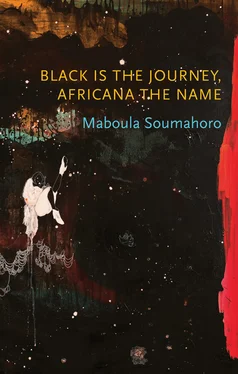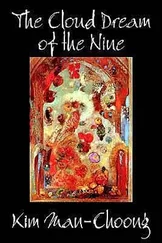If the original French text of Le Triangle et L’Hexagone boldly insists on the presence – and the right to presence – of a Black woman, her body, and her deep history within the French republican community, this translated work insists on the presence of Black France in broader diasporic understandings of blackness within the global community. It insists that US-blackness cannot stand in for the experiences of the wider Black world. It brings us fully into the frame of a diasporic context that is geo-culturally idiosyncratic and deeply familiar, in equal measure. It offers readers in the Anglophone world an opportunity to see the workings and the consequences of racialization through a different lens and, in doing so, to understand both Frenchness and blackness in new ways. As the deliberately rare footnotes reveal (and then only in part), there are specific cultural codes and layers of reference that speak directly into the Francosphere but require the mediating work of translation in order to be legible to non-French readers. To be a Black woman in France is a particular valence of being a Black woman in the world, Maboula affirms; it implicates a particular history and is laden with a particular set of struggles. At the same time, the experience of Black womanhood we discover in Black is the Journey, Africana the Name is capacious. Maboula’s intellectual engagements with racialized communities in France, the United States, and the Caribbean, as well as her own facility with the English language, ground the diasporic resonance at the heart of her work.
“This question of language,” as it is posed in the book’s first pages, is troublesome. “This French language is not my mother tongue,” Maboula flatly notes. “French is my mother tongue, though it is not my mother’s tongue.” Indeed, French is deeply fraught; Jula is painfully inaccessible; and English somehow resembles freedom in this particular story. If Frantz Fanon is right – if it is true that “to speak a language is to take on a world, a culture” 1– then where does that leave Maboula Soumahoro, a Black French woman, born in Paris, raised by a Jula-speaking Ivoirian mother, most at home and most herself in New York City, speaking English? How does this “Black, transnational, diasporic identity” line up with her phenotype, her possibilities, her passport? What is the truest language of her story?
These questions are posed in ways both myriad and direct throughout Black is the Journey, Africana the Name , and they necessarily undergird my translation of this book from French into English. Rendering the eloquence and the adamance of the work’s original prose, its provocative querying and insistent calls for reckoning and recognition, has required a uniquely intimate mode of engagement as a translator. It has offered me the privilege and the pleasure of dwelling deeply with and learning from Maboula’s rigorously intellectual and insightful chronicle. It has meant journeying, admiringly, alongside her while striving to relate her words in my own mother tongue.
Kaiama L. Glover
1 1 Frantz Fanon, Peau noir, masques blancs (Paris: Éditions du Seuil, 1952): 50. “Parler une langue, c’est assumer un monde, une culture.”
An autobiography of reading, observes Dionne Brand, offers the possibility of troubling the terms of being and the social arrangements produced by colonial texts and antiblackness. An autobiography embraces multiplicity, serial and collective iterations of Black life and becoming, in contrast to the autobiography where the definite article identifies “the subject to be made through colonial pedagogies” and the imposed plot of development and belonging. “An autobiography gestures to the world of a reading self,” writes Brand. 1The open question is how might acts of reading trouble, if not topple, the subject, the plot, and the world created by slavery, capitalism, and coloniality. Maboula Soumahoro’s Black is the Journey, Africana the Name is an autobiography of reading, a critical memoir that also gestures to a self shaped and created by reading practices, more specifically, a self engendered by diaspora literacy. 2Black study, as elaborated here, is not confined to matters of curriculum or the reading list, but is an embodied practice and a labor of the heart. The memoir, crafted through an extended set of textual encounters, is an account of linguistic estrangement and chosen blackness. Soumahoro’s autobiography of reading engages a range of thinkers and texts, most notably Aimé Césaire, Maryse Condé, Frantz Fanon, Yaa Gayasi, Paul Gilroy, Edouard Glissant, Stuart Hall, Audre Lorde, Paule Marshall, Achille Mbembe, and Léonaro Miano, in explicating the history of the Triangle, the symbol for the three continents involved in the transatlantic slave trade and colonialism. These writers have provided a critical lexicon for understanding blackness and diaspora, a knowledge suited to the dimensions of the tout monde , and their imprint on this work of autotheory is indelible. Among the central questions of this text: What is the relation between lived experience and the production of ideas? What language is best able to convey the Black presence in France? What justifies the use of the “I” in scholarly work and critical theory? The text wrestles with these questions at the level of form and proposes an answer in a journey through a world of ideas and across the space of the Atlantic. The “I” of this critical memoir is forged by transatlantic histories and Black geographies. 3
Black is the Journey, Africana the Name traces Soumahoro’s development as a young woman of African descent in France, and the belated recognition or embrace of Black identity in the French Hexagon, a context which makes nearly impossible any understanding of her position in the world or her daily experiences as a Black girl growing up in the banlieue . The brutal incommensurability between the routine violence of racism and the seeming neutrality of the discourse of universalism and color-blindness thwart any effort to think or address the processes of racialization and enclosure in the metropole, let alone undo them. With disavowal and blindness as the official mandate of the nation-state, Soumahoro endeavors to find a way of naming the self and narrating her experience in defiance of the imposed terms (of impaired citizen and not-quite French); she is unwilling to be silent about the forms of address that imperil and disfigure Black life or the racial reason cloaked as education and graduate training. This lucid and impassioned book attempts nothing short of dismantling the master’s house. 4
A journey of dispersal and gathering might be the best way to describe Soumahoro’s reckoning with the histories of the Black Atlantic and African diaspora. Black is the Journey, Africana the Name recalibrates the conception of diaspora by amplifying the presence of Africa in the diaspora, not simply as origin, but as haunted and disfigured by the millions gone or lost to the slave trade, by the graves without bodies. The text embraces a language of blackness, which is figured by histories of struggle and emergent solidarities across the globe. It is an autobiographical example of the forces of dispossession and racialization that have produced the diaspora, as well as the exigencies and predation of capital, the interminable and recurring wars, and the longing for the good life that continue to expand and reshape the contours of blackness. This insightful and persuasive meditation on the meaning of the terms “Black,” “Africa,” and “diaspora” explores the legacy of transatlantic slavery, racialization, coloniality, and impaired citizenship.
Читать дальше












